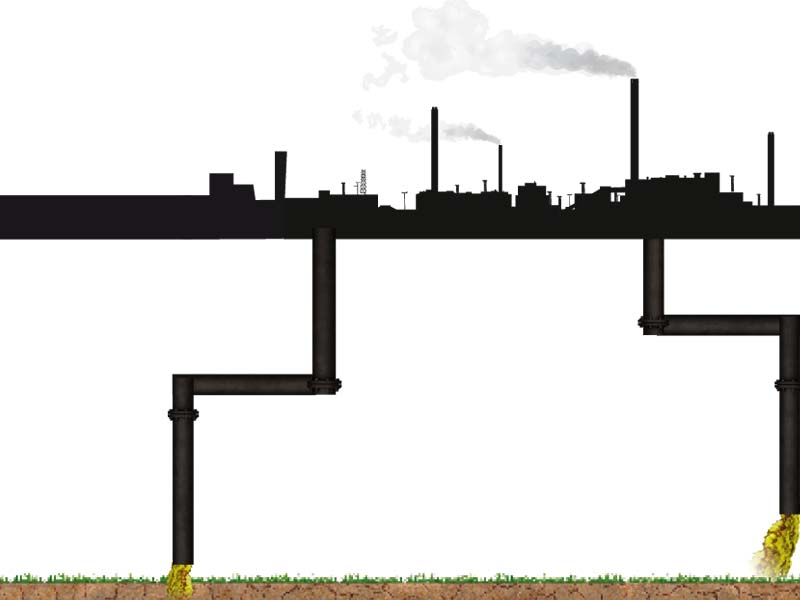
Hazards of pollution and sewage are apparent to the naked eye, but what remains unseen perhaps poses the greatest danger.
Wastewater, heavy in pollutants, seeps its way into the soil that produces the vegetables people of the city consume. “The water of Warsak Canal and Bara River contains excessive amounts of heavy metal and should not be used to irrigate vegetables, especially those consumed uncooked,” says Sajida Parveen of the Department of Soil and Environmental Science, Khyber-Pakhtunkhwa (K-P) Agriculture University.
Parveen has extensively researched the impact of sewage water with heavy metal content on the quality of vegetables in Peshawar.
Pollutants such as arsenic, cadmium, lead, chromium, nickel, mercury, copper, cobalt, chromium, beryllium, boron, manganese, iron and zinc find their way into the soil due to the waste of domestic consumers and the Hayatabad Industrial Estate, apart from other sources. The polluted water is discharged directly into the canals which pass through the city and is ultimately used for irrigation.
Even more alarmingly, farmers are usually comfortable using it for irrigation as it makes the soil more fertile. “Wastewater is usually more vigourous than tube-well water,” says Zaidullah, one of the vegetable growers in Garhi Qamar Din area. He adds that it also reduces the cost of fertilizer. “We have used this water for decades, but the produce is washed before it is taken to the mandi for sale.”
However, just washing the surface does not translate into vegetables free of contamination. Lettuce, cabbage, beets, coriander, radishes, carrots, spinach and parsley, usually consumed without cooking, can create severe complications.
Metal concentration in water
Research at the university shows that the average concentrations of nickel, lead, cadmium and chromium in water samples is 0.6, 0.25, 0.75 and 0.03 mg per litre, respectively. While chromium is in the safe zone, the concentration of the other three metals (Nickel 18%, lead 13% and cadmium 98%) is above the limit. The level of nickel in drinking water, as prescribed by the WHO, is 0.07 mg per litre.
Edible portions
The research further shows that tested edible portions of vegetables have nickel, lead, cadmium and chromium concentrations of 30.14, 27.49, 27.67 and 7.56 mg per kg, respectively. In this case, the concentration of all four metals is above safe levels (nickel 90%, lead 28%, cadmium 83 % and chromium 63%), posing a grave risk to public health.
Leaves
The concentration of nickel, lead, cadmium and chromium in tested leaf samples is 30.78, 15.58, 12.37 and 3.74 mg per kg, respectively. Researchers say leaf tissues maintain toxic levels of heavy metals.
Experts say that while these metals are essential for humans, excessive intake can cause acute gastrointestinal ailments, headaches and impaired immune functions, apart from the fluctuation of lipoprotein and cholesterol levels.
Trickle-down effect
Moreover, the findings reveal that if the water tested is given to livestock for drinking purposes, it can create abnormalities among animals. Declaring the vegetables cultivated using the water unsafe for human consumption, researchers say the produce has been collected from 40 different parts of the city.
The International Agency for Research on Cancer says that excessive levels of nickel can cause lung cancer and sinus problems.
Researchers say that the unplanned expansion of the city and urban congestion are the main reasons behind the pollution of air, water, soil and other natural resources.
Environmentalists add that even trees along the roadside are drying out due to pollution.
Environmental Protection Agency Director General K-Pa Dr Muhammad Bashir Khan says, “Municipal treatment facilities will be designed to generate green energy and stop waste being dumped into rivers and canals.”
Published in The Express Tribune, August 23rd, 2014.













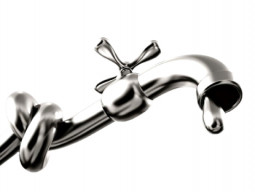
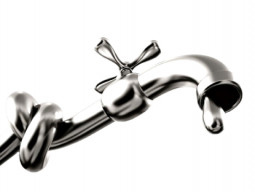
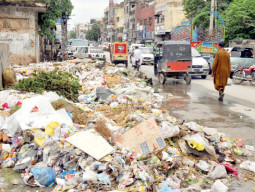



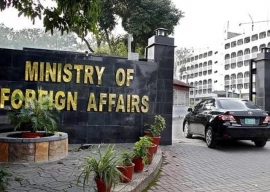
















COMMENTS
Comments are moderated and generally will be posted if they are on-topic and not abusive.
For more information, please see our Comments FAQ